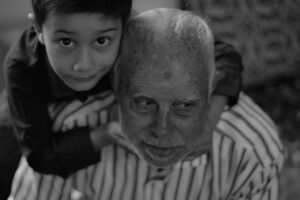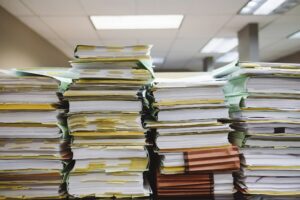 This is the third post in the Poverty Cycle series.
This is the third post in the Poverty Cycle series.
As much as we feel blessed with the life that we have, and as much as we don’t feel lacking of anything at all, having a combined annual income of under $15,000, it is hard to describe our family’s financial situation as anything but poverty.
Do I want my kids to need to think creatively to stretch every dollar to their fullest? I’d like my children to use their heads and not be wasteful of limited resources, but I’d like my children to have that choice and not have it foisted upon them. Like all parents, my husband and I wish that our kids have an easier financial time than we are having now. Most people living a life of poverty have children that perpetuate the cycle of poverty; their children and their grandchildren inherit their family’s troubled financial situation.
My husband and I are determined to break the poverty cycle, starting with us, so that our children can have an even better future. In short, we hope to get ourselves and our kids off the hamster wheel of financial hardship via example, our goals for the future, and our educational plans for our children.
The Poverty Cycle Begins
My husband and I earn less money than my parents and in laws did when we were growing up. On first glance, it may seem that this cycle of poverty has begun with us, that it was our foolish choices that caused us to need to be as tight with our money as we are today.
I’d like to take you on a trip down memory lane, on a visit to mine and my husband’s childhood, so you can get a better understanding of whether our tough financial situation started off with us alone.
Penny’s Family
My dad is a doctor, my mother a physical therapist. Both received a post graduate education and work in money making fields. Surely, I must have grown up wealthy, no?
Growing up in my home, as my mother would say, we had “everything we needed, and some of what we wanted”. My parents brought in a combined high salary, but unfortunately, after all was said and done, not much was left over.
My parents both had large student loans- my father from medical school, and my mother from her Ivy League university. My siblings and I all went to private school that cost around $9,000 per child, as the public schools in the area did not suit our family’s religious and educational needs.
My father started his own medical practice, necessitating purchasing expensive equipment and paying off the loans on those, in addition to needing to pay sky high malpractice insurance and private medical insurance for our family and his secretary. To top it all off, having a decently sized base income and working in a different city than we lived, my father ended up paying 46% of his income in various city, state, and federal taxes. Ouch.
My father could have, potentially, brought in a greater income than what he did, but my dad chose a relatively low paying medical profession, that of preventative cardiology. Lipid lowering simply doesn’t bring in as much money, simply because it helps the patient more than it helps the doctor’s wallet, but my father felt that as a doctor, his goal should be to help people live longer, not to become as rich as possible.
When all was said and done, after expenses were paid, there was not much money left for nonsense. Financial stress ruled the home, but the specifics eluded me. All I knew was that money was tight.
My father and mother each used their various skills to stretch that money as far as they could, making sure that we lacked nothing and even were able to have a decent amount of extras.
We always had a variety of tasty foods to eat, enough clothes to wear, a cozy home, and a quality education. With their thrifty ways, my parents were able to save enough money to pay for extras like sports, music lessons, and family trips and vacations.
I learned valuable skills from my parents, skills that assist me to this day, like learning from my dad how to get the most bang for my buck in the grocery store, to make sure I’m not overpaying for anything, and the danger of credit cards and consumer debt. From my mom, I learned to be happy with what I have, the value of shopping second hand and even dumpster diving, and the ability to make both make do and make things from scratch.
Mike’s Family
On the surface, my husband’s family appeared to have more money than mine did while he was growing up. His family lived in a large house in a wealthy area, he and his siblings always had the latest and greatest gadgets, gizmos and clothes, and the food in Mike’s house was fancy enough to serve royalty.
Born in South Africa, my husband’s family arrived there in the early twentieth century penniless and had a sudden turn of fortune. Mike’s grandpa owned a factory which made a decent sum of money, and hired Mike’s dad to work for him.
My father in law made a decent amount of money as the head of the factory, and found a great deal and bought a large home with expansive grounds for dirt cheap. He lucked out tremendously with that purchase, for when the family moved abroad some years later, they were able to sell it for millions of Rand, giving them
a nice little nest egg with which to buy their large home in a good area in my current country while still leaving them with plenty of money to spare.
What people don’t know about my husband’s childhood is that his family wasn’t exactly well to do. They lived like the wealthy for the most part, but didn’t save for a rainy day.
To make a long story short, through lots of good luck and bad luck, and a great deal of unwise spending habits, my husband’s family lived on a financial roller coaster, what with international trips abroad, maids, gardeners and lots of luxuries during the high points, and with electricity, water and phones being cut off due to lack of payment during the leaner times.
My husband had more “stuff” than I had growing up, and people still think of his family as being rich, but my husband grew up with a great feeling of financial insecurity and was quite aware of his family’s money problems.
Mike definitely did not have good examples to learn from how to properly manage money, and it affects him and our family’s finances still today.
My family and Mike’s family would never have been classified as poor, but both of our families were plagued with financial issues and stresses, to the extent that I have to count them as the precursors to, if not already a part of our “Poverty Cycle”.
Penny and Mike Penniless
My husband and I had quite different financial upbringings, as you can clearly see. Since being financially independent, we had a definite learning curve and both made quite a few mistakes and unwise decisions along the way.
The first “mistake” is that my husband and I got married young, without an education. I don’t regret marrying young, which is why “mistake” is in quotations, but marrying young with no education definitely affects our ability to make money, especially as we had our first child a year later, making it less worthwhile for me to work. I’ll expand on this aspect in my post on educational choices.
We also had the misfortune of signing a lease with a landlord with no morals and no money in a location where prices rose drastically in a short time. The same apartment with which we signed a lease for $350 dollars in 2006 is now being rented for $650! In addition to that, my landlord refused to fix anything that broke, even what he was required to by law, and we ended up paying hundreds of dollars out of pocket to fix our hot water heater, broken doors and lots more.
We could have left before we did, but the cost of moving is so expensive and there weren’t many available places to rent that were significantly cheaper than where we were living that we toughed it out with a despicable landlord for nearly 4 years.
We ended up needing to leave the apartment mid-lease as our life was simply becoming hellish over there. We paid double rent for 3.5 months, totaling almost an extra 1700 dollars on rent recently. Yes, that is an insane amount that further troubles our financial situation, but in all honestly, it was one that was quite necessary and a wise move, for reasons that I won’t get into now.
I view that 1700 plus the other few hundred we spent on fixing broken utilities to be the cost of our mistake of not stipulating conditions clearly enough in our contract and not doing any research on my landlord prior to signing that original contract with him in 2006.
Other mistakes were made that cost us more money when we were still learning to live within our means. At first, I assumed that if I was simply spending less than others were spending nothing more needed to be done. I was calculating my spending compared to others instead of writing out a budget based on the amount of available income we had. We also spent too much money on hobbies and “deals”, assuming that those little pennies didn’t really make a difference and that you shouldn’t pass up on a deal (even when it wasn’t
something we needed).
(We also got bitten by an old nearly thousand dollar bill of accumulated interest that was long forgotten by someone who shall not be named so as to not be embarrassed. I don’t hold it against him because it was a bill from when he was quite young which he honestly had forgotten about, and he hadn’t had the best example when it came to taking responsibility for bills and not letting things accrue interest. I mention this not to criticize, but simply because this big sudden bill that arrived during the most expensive time of year was the reason we took out our first bank loan, because we simply had no money to pay it and we had already been summoned to court over it.)
Fortunately, in the last few years, we’ve learned from our mistakes and have gotten our acts together. We don’t spend money we don’t have and try our very best to live within our means, to save for the purpose of improving our lives and the lives of our children.
Teaching By Example
The biggest issues we had financially when we first got married were lessons we had to unlearn from our parents. My husband had to learn how to live within our means and not shop impulsively as he had seen growing up.
I needed to learn a more complicated lesson. I assumed that if I lived and shopped like my Dad and Mom, I was doing all I needed to do and all would work out for us financially. I wasn’t taking into consideration that my parents’ income was in a completely different category than mine was or that different methods of saving needed to be used in different locations. Buying the cheapest cereal and baked goods like my parents did wasn’t enough. I needed to simply not buy that cereal and make baked goods from scratch.
The most important lesson I needed to learn was that everyone’s frugal strategies need to be tailored to their income and other needs, and that frugality isn’t a one size fits all solution.
My parents struggled to support us and worked hard for their money. They put an effort in to be able to live the lives they did. My husband and I have learned the value of hard work and aren’t afraid to toil for things we consider worthwhile.
I am pretty sure that as parents, Mike and I are being a good fiscal example for our kids, especially since we’ve come so far.
The mistakes of the poor I talked about yesterday? Well, we’re not like that, fortunately. That automatically puts us in a different category from most people living in poverty.
My children, hopefully, will learn to savor the results of their labor and will appreciate how good it feels to work hard for something and succeed.
My children, hopefully, will learn to live within their means, no matter how much income they’re bringing in.
My children, hopefully, won’t be afraid to get their hands a little dirty.
My children, hopefully will see that little pennies add up and allow you to fulfill your dreams.
Penniless Dreams
My husband and I are working to improve our future. We don’t always want to be struggling to pay our bills, and have concrete plans as to how to make that difference in our lives.
Unlike most people, Mike and I don’t aspire to be rich. We simply don’t want to have to worry about how to pay all those bills, but increasing our income is only a small part of that picture.
Mike and I have a dream to build ourselves a little sustainable homestead. We’d like to have a plot of land on which we’d grow most of our food. Well water and rain cisterns, composting toilets, solar water heating, solar electricity and wind turbines combined with the home grown produce would allow us to be virtually self sufficient and eliminate virtually all our bills.
For the rest, we’d either raise goats for profit or simply have my husband find a part time, even minimum wage job. That, combined with money I make via writing, my website, or even my “financial advisory business” (more on that in a future post) would definitely be reasonable to live off of once we have no more electric, water, or most of our food bills.
My husband and I are still paying off some contracts which we stupidly signed and are unable yet to cancel, as well as making payments on our oven and bank loans we took. Even so, we still are managing to put money aside in savings every month, money towards our dream.
Once we are finished paying off all the aforementioned things, we’ll free up lots more cash to be able to put into savings, and that, combined with the assistance towards a down payment my dad said he’d help us with once our loan is paid off should hopefully allow us to buy a parcel of land and build a home.
Ideas for the home include a yurt, a log cabin, a straw bale home, or even simply a trailer or two. The idea is still up in the air, but no matter which one it will be, it’ll be relatively cheap and affordable, especially since we’re willing to build it ourselves.
We have a dream, and we’re working our way towards that goal. My sons will be better off once they see that we’re able to snap out of the poverty cycle, have a money-stress-free life and be self sufficient and content.
Our Education Plans
This post has gone on long enough, so I’ll elaborate on this in another post, but in as few words as possible:
We truly believe that by homeschooling our children we’ll help them, without a doubt, snap out of the poverty cycle once and for all.
More on that later.
Yes, we’re poor.
No, we’re not like everyone else because we’re getting off the bandwagon, we’re taking charge, and we have plans to ensure that we, and consequently our children, not continue the poverty cycle for more and more generations.
What do you think? Do you think we’ll have much success in getting out of the poverty cycle, or do you think we’re being too naive and that the aforementioned ideas won’t help much?
Are you currently living in poverty? What are your plans to break the poverty cycle?
The Poverty Cycle
Poor People Start Off Behind In Life
Common Mistakes of the Poor
Breaking the Poverty Cycle
Education Plans to Break the Poverty Cycle- coming soon!
Linking up to Frugal Friday.



